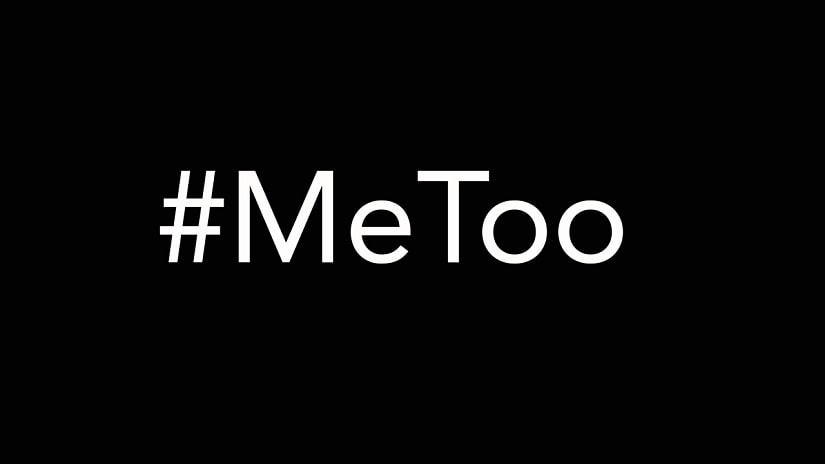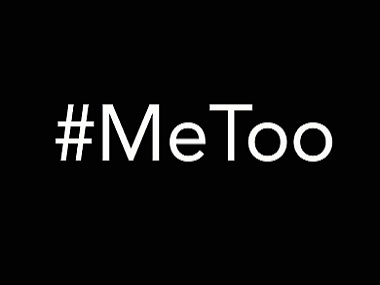#MeToo has become a force to reckon with in the world of Carnatic music. It is a “storm” as N Murali, president of the Madras Music Academy, puts it. #MeTooIndia posts, naming one or the other public figure, have generated strong emotions: satisfaction at the exposure of the alleged offenders, even as life crumbles around those who have been named and shamed. Many of these posts, while anonymous, are perceived as believable — as a confirmation of rumours known all along. The general mood is one of righteous satisfaction combined with horror at the extent of the harassment, and its depravity. “And that too in the exalted field of Carnatic music, which is supposed to be the bastion of our culture!” remarked a panelist during a TV discussion. Such murkiness can be anticipated in the world of films perhaps. But in Carnatic music? When well known, senior, respected gurus are charged with misconduct, it shakes many conceptions about that world. The casting couch is a familiar problem. In the field of arts — disorganised and riddled with the absence of systemic processes as it is — movers and shakers elicit their pound of flesh for offering opportunities. Like bad breath or body odour or a loud voice, this is tolerated by the ambitious. “Normalisation” is a word we have been hearing much in this context. We have almost become desensitised to the evil of bribery. That is the nature of human transactions. Dignity, fairness and high mindedness are rare. People put up with filth on the road to success. But sexual misdemeanour and worse, engaging in power play while making sexual advances, is not like your boss’ bad breath. Of course one wants to avoid the boss’ halitosis, but it only lasts a moment. On the other hand, an unwelcome sexual advance or inappropriate behaviour has a deep, psyche-scarring impact. If that is demanded as the price for career advancement, that is as demeaning as it can get.
#MeToo has become a force to reckon with in the world of Carnatic music.
Carnatic music operates informally at every level: How a teacher teaches, what she teaches or does not teach, whom she teaches — are entirely up to her discretion. Who an organiser invites to perform, who he ignores, whose opinion he is influenced by, and finally how much he pays the performer are all unregulated, without process. Often, senior gurus exercise significant clout in influencing the choices of the organiser, as do many senior accompanists. Students and young performers need their guru’s support, and that of other senior musicians. When these respected gurus and senior vidwans are accused of preying upon vulnerable students and performers looking to make their way up the field, it is deeply disturbing. The larger cultural situating of the guru-shishya relationship as sacred, one that calls for unwavering faith in the guru and reverence for his every word and whim, makes this even more appalling. That the alleged perpetrators would exploit this lofty ideal, clearly irrelevant in the current times, is tragic. The responsiveness of the Music Academy, the premier sabha in Chennai, to the #MeToo posts has been exemplary. When the first wave of allegations were posted last year by law student Raya Sarkar (through her
List of Sexual Harassers in Academia
aka LoSHA), the Academy took action by asking one of its secretaries — whose name featured on the list — to step down. The move was described as a “voluntary stepping down”. This time however, the Academy has dropped seven artistes from the forthcoming music festival in December without any sugarcoating; one of the ousted musicians
is the recipient of
their highest award, the coveted Sangeetha Kalanidhi. Academy president N Murali clarified: “The Music Academy has a right to feature a musician or not in the festival, so we exercised it. This is not a legal process. These are allegations and we are not judging them guilty.” [caption id=“attachment_4381981” align=“alignnone” width=“825”]
 In the case of Carnatic music, no celebrity has come out with her #MeToo experience[/caption] This brings in the legal or semi-legal angle of the problem. The strength of #MeToo lies in the strength of the group it brings together. When eminent women in the US came out with accounts of their experiences, and led to an outpouring of similar posts, the pervasiveness of the problem was brought into horrifying focus. These women had nothing to gain from putting themselves out like that, except to work towards a time when — to quote Oprah Winfrey — “Nobody ever has to say #MeToo again”. In the case of Carnatic music, no celebrity has come out with her experience, and so no support seems to be coming from that direction. Of course it is possible that there is nothing to talk about! But hey, did it suddenly get so murky for one generation of musicians? It is disquieting but not surprising, given the exponentially more conservative nature of society here. Chinmayi Sripada, playback singer, first carried a few anonymous posts about Carnatic musicians on her timeline in the wake of her post about a celebrated lyricist. Dancer Swarnamalya Ganesh then opened up her timeline for such posts in the field of Carnatic music and Bharatanatyam, and this is where some of the most horrifying details have emerged. Specific #MeToo stories about a guru inviting an 18-year-old student into his bedroom and telling her about his unhappy marriage, asking for “experiences” in return for the concert opportunities he got her, and other such posts left the Carnatic world dumbfounded. Many accounts emerged from students and performers in the US, who submitted a letter to the Cleveland Aradhana Committee (the organiser of the biggest event of Carnatic music in the states and a major player in the Carnatic world); the letter stated that the glamorous Cleveland Aradhana is “decidedly unsafe”. While the Madras Music Academy removed the seven musicians from its December/Margazhi line-up, other sabhas in Chennai have not followed suit. NRI parents and performers have expressed anguish that the Cleveland Aradhana Committee has not taken cognisance of the #MeToo posts and acted on the lead provided by the Academy. There are murmurs that one of the accused is the financial whiz of the event as also a major provider of funds for many sabhas in Chennai. It is not easy to touch him. Significantly, a public hearing and consultation
was held in Chennai
in which certain allegations were presented before an audience and a group of panelists. Social activist Radhika Ganesh (founder of the collective Ek Potlee Ret Ki), who has also been a rallying point for survivors, brought in quite a bit of jingoism in her presentation. And when a panelist wondered if it would not be a good idea to castrate all men above sixty, one struggled to see the point of the meeting. A leading dancer present at the hearing agreed that the pitch was not restrained but argued that it is years of bottled-up frustrations erupting now, which means the discourse may not always be civilised, dignified and sensitive. And this is one of the issues that plagues #MeToo in Carnatic music. Ganesh, on calling out one alleged offender based on an anonymous post, branded him with a figurative red-hot poker, saying: “Sicko, your #TimesUp!”
In the case of Carnatic music, no celebrity has come out with her #MeToo experience[/caption] This brings in the legal or semi-legal angle of the problem. The strength of #MeToo lies in the strength of the group it brings together. When eminent women in the US came out with accounts of their experiences, and led to an outpouring of similar posts, the pervasiveness of the problem was brought into horrifying focus. These women had nothing to gain from putting themselves out like that, except to work towards a time when — to quote Oprah Winfrey — “Nobody ever has to say #MeToo again”. In the case of Carnatic music, no celebrity has come out with her experience, and so no support seems to be coming from that direction. Of course it is possible that there is nothing to talk about! But hey, did it suddenly get so murky for one generation of musicians? It is disquieting but not surprising, given the exponentially more conservative nature of society here. Chinmayi Sripada, playback singer, first carried a few anonymous posts about Carnatic musicians on her timeline in the wake of her post about a celebrated lyricist. Dancer Swarnamalya Ganesh then opened up her timeline for such posts in the field of Carnatic music and Bharatanatyam, and this is where some of the most horrifying details have emerged. Specific #MeToo stories about a guru inviting an 18-year-old student into his bedroom and telling her about his unhappy marriage, asking for “experiences” in return for the concert opportunities he got her, and other such posts left the Carnatic world dumbfounded. Many accounts emerged from students and performers in the US, who submitted a letter to the Cleveland Aradhana Committee (the organiser of the biggest event of Carnatic music in the states and a major player in the Carnatic world); the letter stated that the glamorous Cleveland Aradhana is “decidedly unsafe”. While the Madras Music Academy removed the seven musicians from its December/Margazhi line-up, other sabhas in Chennai have not followed suit. NRI parents and performers have expressed anguish that the Cleveland Aradhana Committee has not taken cognisance of the #MeToo posts and acted on the lead provided by the Academy. There are murmurs that one of the accused is the financial whiz of the event as also a major provider of funds for many sabhas in Chennai. It is not easy to touch him. Significantly, a public hearing and consultation
was held in Chennai
in which certain allegations were presented before an audience and a group of panelists. Social activist Radhika Ganesh (founder of the collective Ek Potlee Ret Ki), who has also been a rallying point for survivors, brought in quite a bit of jingoism in her presentation. And when a panelist wondered if it would not be a good idea to castrate all men above sixty, one struggled to see the point of the meeting. A leading dancer present at the hearing agreed that the pitch was not restrained but argued that it is years of bottled-up frustrations erupting now, which means the discourse may not always be civilised, dignified and sensitive. And this is one of the issues that plagues #MeToo in Carnatic music. Ganesh, on calling out one alleged offender based on an anonymous post, branded him with a figurative red-hot poker, saying: “Sicko, your #TimesUp!”
)